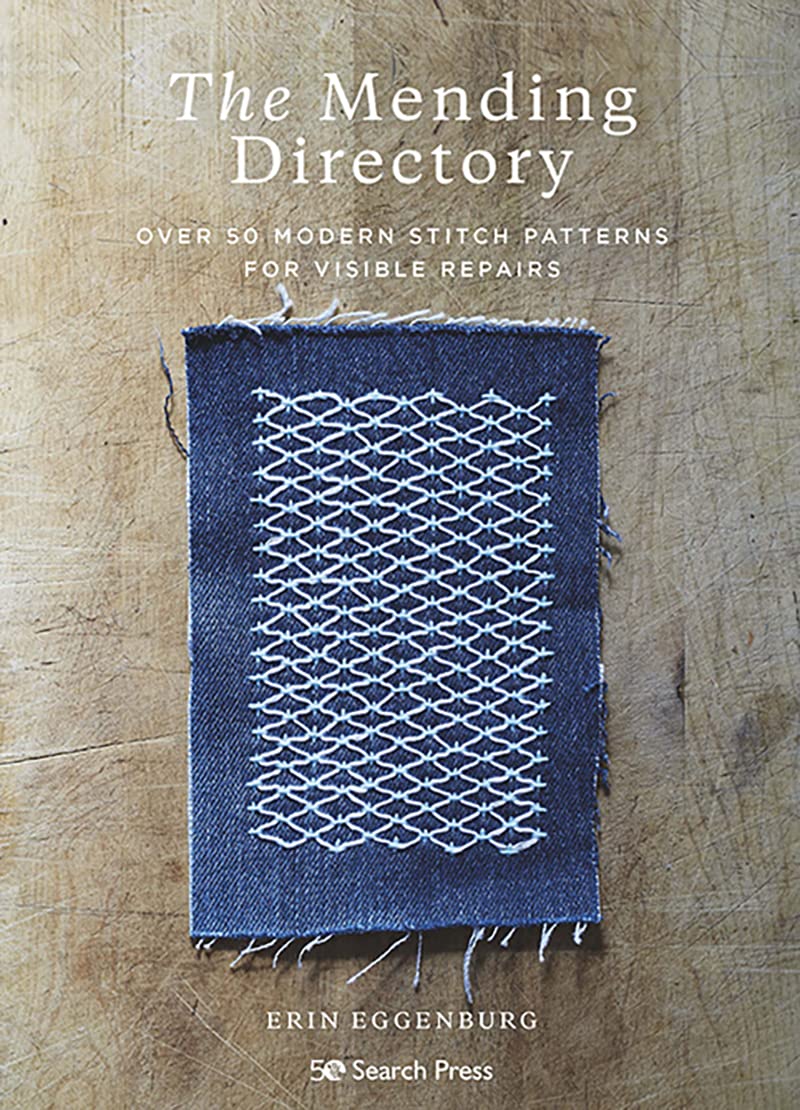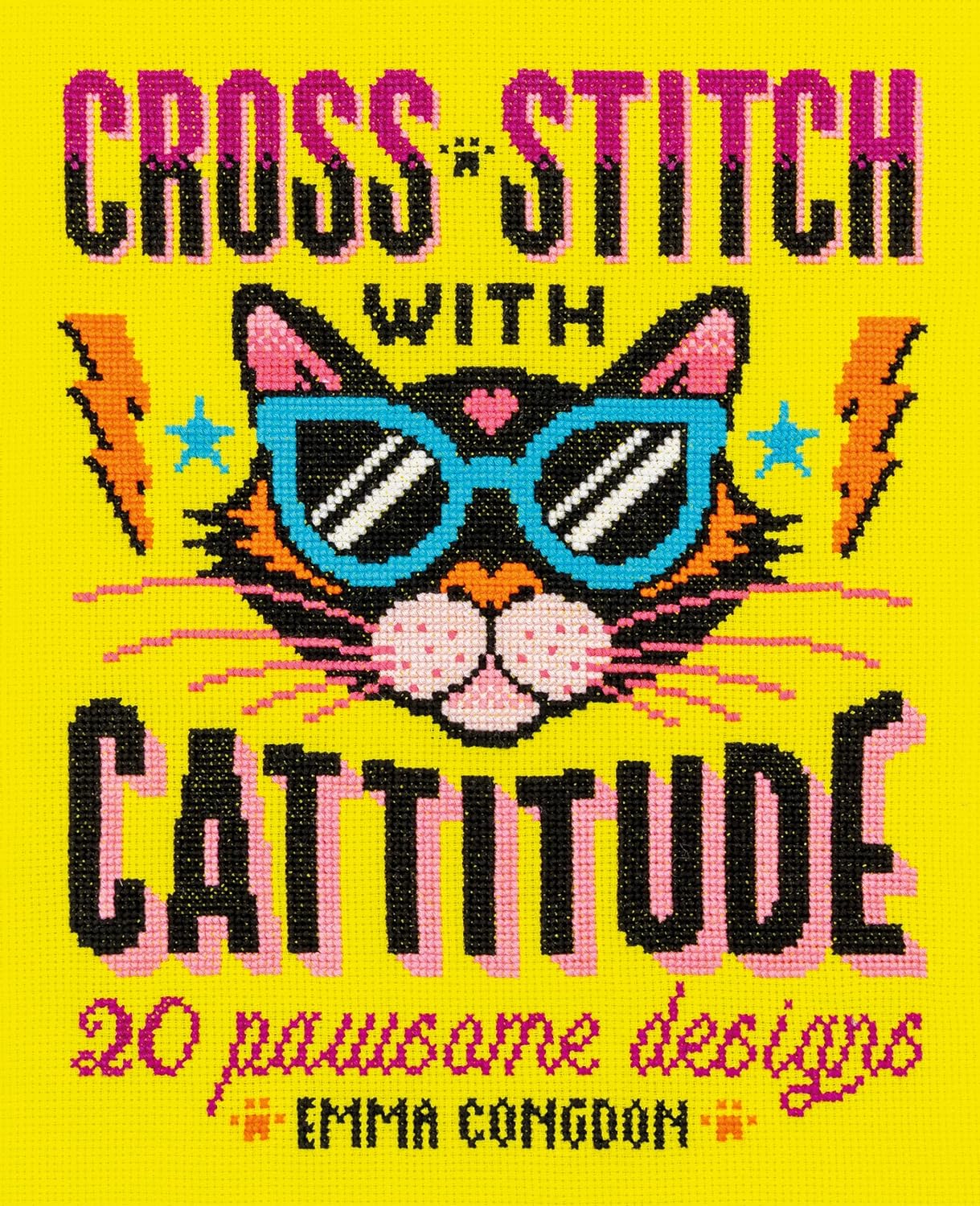
At Mr X Stitch we love to review textile art and embroidery books for you. There are so many great books to discover, packed with needlework inspiration and textile techniques, so we dive into each book to find out what’s good, what’s bad and let you know why you should pick it up.
The Mending Directory: Over 50 modern stitch patterns for visible repairs by Erin Eggenburg
Published by Search Press
Introduction
Have you got a load of old clothes which are too sentimental to bin but too ruined to use? Using The Mending Directory, become inspired how you can salvage them and give them a new life. With over fifty patterns and ideas, there will be one to suit your item.
Who is Erin Eggenburg?
Erin Eggenburg is a mending tutor, and owner of Wrenbirdarts, as online shop specialising in mending. She founded an amazing Mending Club, an online forum for those interested in repairs and mending. This begun during covid-19 allowing members to socialise and connect online. She has an instagram account with many followers and lives in the USA.
Who is this book aimed at?
Those with an interest in using embroidery and needle skills to mend and repair objects such as ripped jeans and holed jumpers, allowing ruined items a new life. This book will also interest readers who love to recycle and care for the planet.
After reading, I think this book is suitable for all abilities as each project has clear step-by-step instructions and photographs. The book has been aligned to begin with beginner level projects, getting harder onwards.
Content
On first glance, I am not surprised by what is listed. We get the usual intro section, following with the projects and then the credits to finish. However on reading through this book, I have discovered so much more. I will reveal the highlights now…
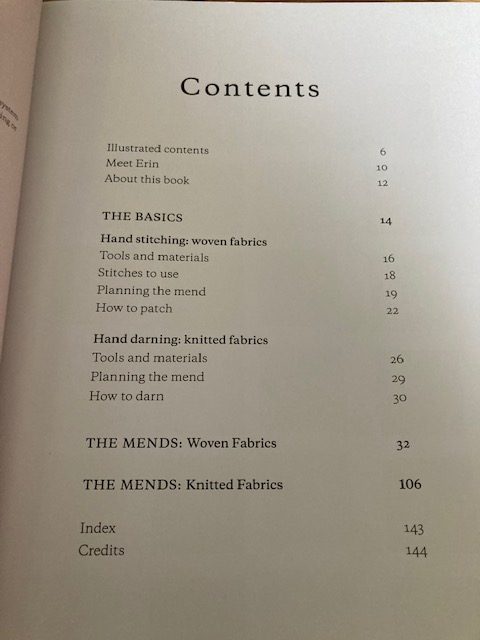
I liked how Erin tries to connect with us readers via her about the author page. It’s quite personal and tells her story without being over lengthy.
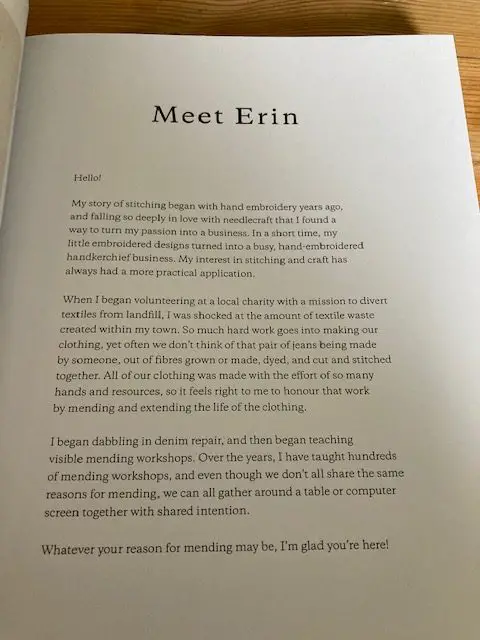
Following on from the whole usual contents list and authors note, I liked the way Erin pictures the mending outcome with the page number we will find it on. This makes it quicker to locate what we are looking for.
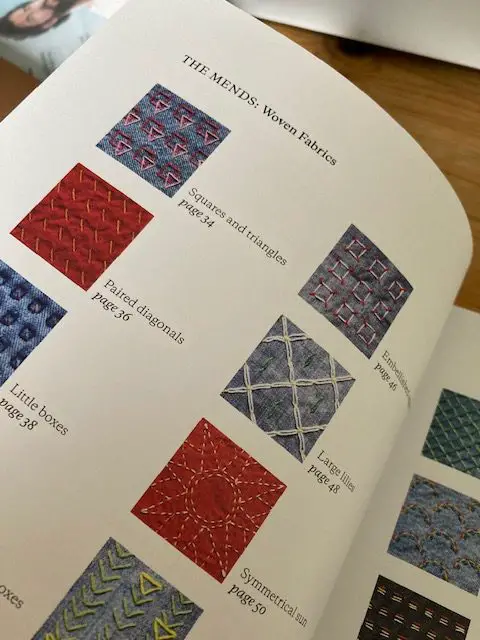
The tools and materials are pretty basic, so sourcing them won’t be an issue. Most of us who use embroidery in some way will have them already.
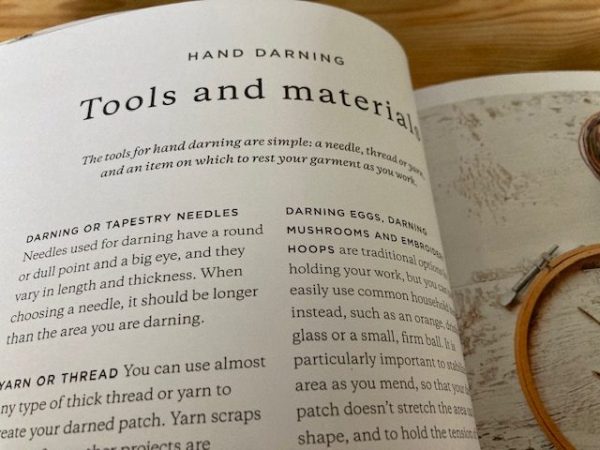
What is the mending discussed in this book?
I pose this question as mending can have loads of different meanings, depending on the context. In this book, it obviously relates to textile art, yet more specifically within this book you will learn how to extend the life of all your favourite items, which are ripped or damaged in some way. The mending instuctions shown could be classed as visible mending, which is when an item is repaired in a way to make it obvious that a mend is present, rather than trying to repair the item to look perfect again.
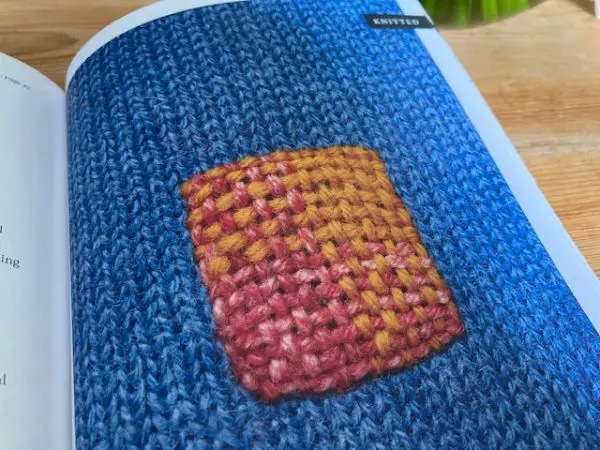
What is good about this book?
The level of skill required by the project is made obvious by Erin, which really helps readers to know where to begin….
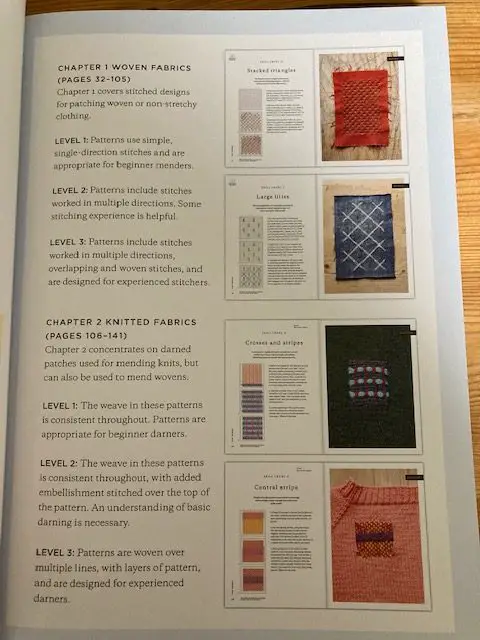
The photographs are beautiful, allowing us to see how the stitch patterns can work in reality. We don’t just learn the patterns, we learn how to use them in real life.
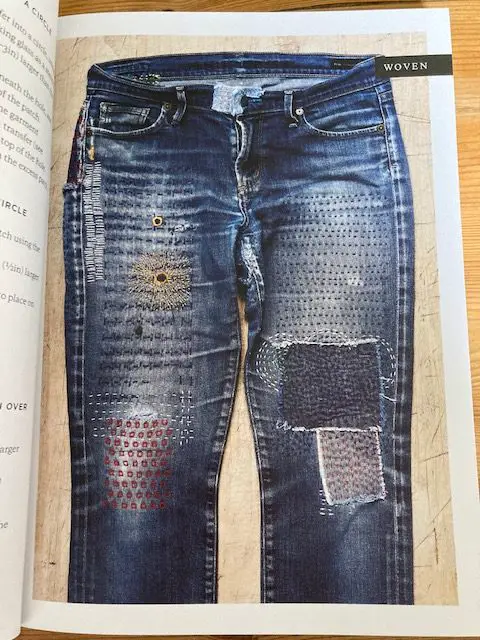
I also actually really like the stitch patterns taught in themselves. When I think of mending, my mind immediately goes to techniques such as Sashiko and Boro, with plainer stitch patterns. We have plenty of posts on Boro and Sashiko so do check them out too! However this book focuses not on the item to repair, but the visual beauty of what could be added. This heart pattern is one such example.
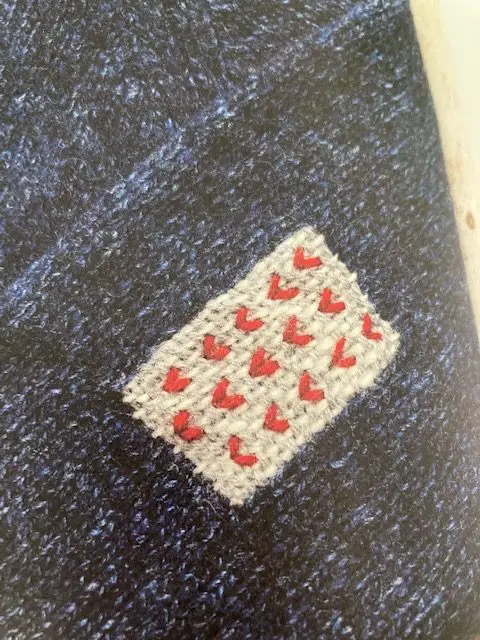
I appreciated the number of step-by-step instructions. They do not leave gaps for us to guess or interpret, they are realistic and clear for all skill levels to read and discern.
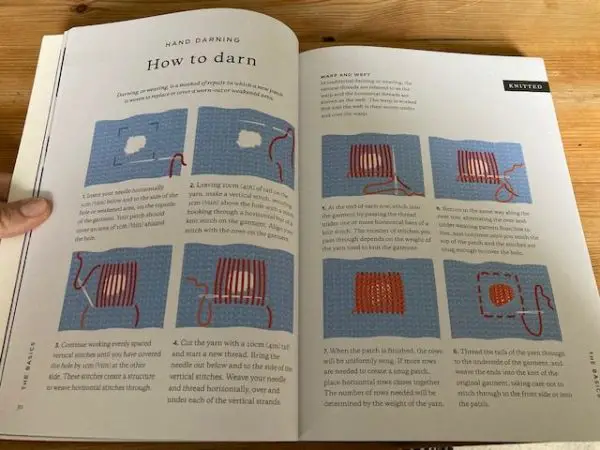
Anything wrong with the book?
If you do not like the idea of mending and repairing your items then it won’t interest you.
Conclusion
The Mending Directory: Over 50 modern stitch patterns for visible repairs by Erin Eggenburg
If you enjoyed this book review, why not read more of our reviews?

